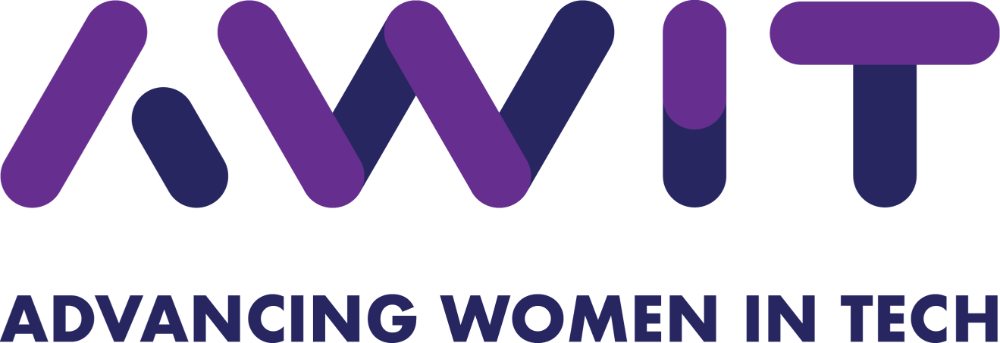Quiet Quitting "I'm gonna stay put...but switch off"
By Angie Min
It’s safe to say that the TikTok trending topic, “Quiet Quitting” probably turned a few of our heads and raised a few eyebrows when it first emerged in August 2022. If you haven’t heard of it before, the term refers to employees who do just enough in their role but never push beyond the expectations of their job description. Unsurprisingly, the topic has been met with a lot of controversy, with many claiming that it’s “not a thing.” But underneath it all, it is of course real to the degree that it has made us all think about work and where we believe it should slot into our lives…
To discover more, Untapped AI CEO and Co-Founder and AWIT Ambassador, Kendal Parmar moderated a recent panel, “Quiet Quitting - Part II of the Great Resignation” led by industry experts from Twitter, Lattice and LinkedIn to open up the discussion and learn whether this stylistic phrase actually has substance. Below are the top three takeaways from the panel.
The Biggest Issue is the word ‘Quiet’
‘Quiet’ is the word that made the panelists pause and think. Because what it reflects is that it seems many employees are unwilling or feel unable to have difficult and honest conversations with their managers.
There are a lot of reasons for this, but a lot of communication based issues in the workplace are due to the culture and the relationships between managers and their employees. It seems that the factors which would cause an employee to “quiet quit” are largely the same factors as the ones which would cause disengagement at work.
Factors such as:
● feeling misled about what a job actually entails,
● feeling as though one is being taken for granted,
● not having a strong support system at work,
● Poor peer to peer or managerial relationships
In work cultures where these factors are common, it might not be unfair to say that scaling back the efforts at work to preserve oneself might not be a calculated decision made from a place of resentment. Instead, it might be a natural reaction to an unsustainable way of working.
So, it seems that without careful and honest consideration towards the system in which employees work, these mutual bridges of trust cannot truly be formed or preserved. Where this continues to be the norm, we can largely expect that the underlying issues that topics like Quiet Quitting are pointing towards will continue to evolve until there’s a new type of ‘quiet’ in our headlines.
Line Managers are at the Forefront of the Employee Experience
With almost 60% of the US workforce having the option to work partially from home (McKinsey), this also adds different layers of complexity as to what it means to be part of a company.
Therefore, panelists indicated that the role of a line manager has never been more crucial to the employee experience. With many young professionals still being onboarded and spending their formative years working remotely, this relationship can hugely shift the dial on whether an employee feels engaged and valued, or disillusioned and undervalued.
A lot of what causes quiet quitting is as a result of employees having previously gone above and beyond for an employer, yet feeling burned by what they received in return. Add in the factor of working from home and a lot of these sentiments can build up quickly into resentment when left unaddressed by either party.
And in hybrid work models, resting on the assumption that a direct report would simply come to a manager if they had concerns about their career development seems outdated. When we can’t see colleagues face to face, it’s impossible to know what might be going on for them without asking.
That’s why audience members often said that solutions to Quiet Quitting often started with the simple human fundamentals. Taking active steps towards building trust and a relationship. In action, this means taking even a few minutes to ask about someone’s day and not just diving straight into business. Additionally, explicit and verbal acknowledgement that your colleagues are appreciated, valued and recognized for the work they do and who they are.
This is an Evolution of the Changing Philosophies about Work
Most workplaces are now multigenerational, housing Baby Boomers to Gen-Zs, all with different perspectives on work and different workplace values. If we start with Baby Boomers, research suggests that workplace values such as hierarchical structures, striving to win, and resourcefulness rank highly.
Contrast this to Gen-Z, where purpose and meaning are ranked more highly as prominent workplace values. In fact, this generation was less focused on salary and more on working in an organization that they felt matched their own personal values.
So, it’s only natural for varying and sometimes opposing discourses to take place. In particular, whether work should be a defining pillar of someone’s overall identity. A question that started in the pandemic and that still eludes people all over the world today.
Panelists noted that the job someone held could often be seen as one of the most revered aspects about a person. Indeed, we still often ask the question, “so what do you do?” when we meet new people. However, it seems that Gen-Z in particular are rejecting this societal norm and the expectations that come with it.
Untapped AI is a London-based coaching company which excels at helping organizations build people-first cultures. Utilizing the best in class of professional coaching, organizational psychology and AI, Untapped AI works with companies and individuals to create a better workplace experience for all. For more information, please go to www.untapped.ai.

